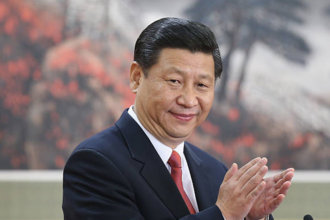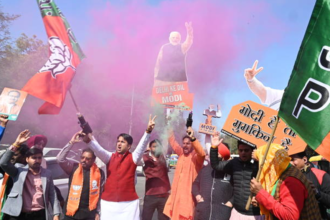A group of 22 people from Bangladesh, including journalists, academics, civil society activists, and political leaders, has left for China for a 10-day stay. Senior members of the ruling Communist Party and representatives of the Chinese government are negotiating with the group. The relationship between China and Bangladesh is anticipated to be significantly impacted by this visit.
Leading the trip is Abdul Moyeen Khan, a senior politician in the Bangladesh Nationalist Party (BNP), who called the visit “a goodwill initiative, organized by Beijing.” In order to highlight the trip’s uniqueness, he said, “China has invited a team representing various groups in Bangladesh, making it an unprecedented diplomatic engagement.” China’s emphasis on improving relations between Bangladesh and China is demonstrated by this visit, particularly during a period of rising regional tensions.
Bangladesh is an important part of China’s Belt and Road Initiative (BRI), which has been steadily expanding its influence in South Asia. It is not surprising that China is interested in developing closer connections with Dhaka given Bangladesh’s expanding economy and advantageous position. According to political commentators, this visit could result in improved geopolitical cooperation, infrastructure projects, and economic ties between the two nations.
What is the visit's political context?
The visit coincides with escalating diplomatic tensions on a number of problems between India and Bangladesh. The position of former Bangladeshi Prime Minister Sheikh Hasina, who is currently living in exile in India, is one of the main areas of disagreement. Her extradition has been legally requested by the Bangladeshi government so that she can be charged with money laundering, crimes against humanity, and other offenses. The two nearby countries are at odds because India has so far failed to comply.
Sheikh Hasina was overthrown in August of last year after a widespread rebellion against her government, which was mostly sparked by student-led demonstrations. India has been urged to send Hasina back to Bangladesh for prosecution by the interim administration, which is now headed by Nobel laureate Muhammad Yunus. According to the UN, a violent crackdown on protestors during the revolt claimed the lives of almost 1,400 people. China is increasingly more involved in Bangladeshi politics as a result of the country’s political unrest, which has caused changes in diplomatic ties.
The significance of the visit is increased by this background. Many people think that China wants to improve ties between Bangladesh and China by taking advantage of Bangladesh’s increasing distance from India. In the upcoming months, regional geopolitics may change as a result of Bangladesh’s growing diplomatic ties with China and India’s unwillingness to cede Hasina.
Who are the delegation's important players?
The BNP and its affiliated parties comprise a large portion of the delegation. One of Bangladesh’s two main political parties is the BNP, which was led by former Prime Minister Begum Khaleda Zia. The other is the Awami League, which Hasina once led. The delegation comprises representatives from the student movement, which was instrumental in overthrowing Hasina’s government, in addition to political figures.
Leaders of student movements must be part of the delegation. These people played a key role in organizing large-scale demonstrations against Hasina’s governance, and their participation in the visit shows that China is eager to interact with all facets of Bangladeshi politics. China’s support for these young leaders has the potential to strengthen the two countries’ relationship.
Beijing is eager to build lasting ties with all of Bangladesh’s factions, as seen by its invitation to a politically diverse delegation. By doing this, China is fostering political and diplomatic ties with Bangladesh in addition to looking for economic alliances.
What effects will this visit have on relations between China, India, and Bangladesh?
China’s invitation to this varied team, according to analysts, is a calculated attempt to increase its influence in Bangladesh, especially as tensions between Delhi and Dhaka continue to rise. China seems to be establishing itself as a significant actor in Bangladesh-China ties by interacting with different political groups.
Meanwhile, Dhaka and Delhi are now at odds diplomatically as a result of India’s refusal to extradite Hasina. The interim administration of Bangladesh insists that Hasina must go through the legal system, but Hasina refutes all of the accusations made against her. As Bangladesh moves closer to China, India, which has historically been a close friend, suddenly finds itself in a difficult diplomatic situation.
Bangladesh’s expanding relations with China present geopolitical and economic difficulties for India. As part of the Belt and Road Initiative, China has already made significant investments in Bangladesh’s energy projects, highways, and bridges. Bangladesh might become more reliant on Chinese investments if China expands its economic ties, which would lessen India’s sway over the area.
India will have to exercise caution in this changing environment. It runs the risk of further entangling Dhaka and encroaching on China’s territory if it disregards Bangladesh’s requests regarding Hasina. However, India might be able to offset China’s increasing involvement if it takes action to strengthen its diplomatic ties with Bangladesh.
What are the potential results of this diplomatic interaction?
The visit might influence Bangladesh’s future diplomatic alliances and open the door for closer collaboration between China and Bangladesh. As Bangladesh attempts to manage its present political transition, many hypothesize that Beijing’s outreach may result in more political and economic cooperation between the two countries. New trade and business opportunities between China and Bangladesh may result from improved connections between the two nations.
China is already one of Bangladesh’s biggest economic partners, and this visit may set the stage for further infrastructure projects, trade deals, and military collaboration. Dhaka may benefit from China’s experience in industrial and technology development as Bangladesh seeks to modernize its economy.
It will be essential for Bangladesh to keep its relations with China and India in balance. China provides economic incentives, but because of their strong cultural and historical links, Bangladesh cannot afford to cut up all ties with India. To make sure it can get the most out of both China and India, the interim administration will need to practice cautious diplomacy.
The results of this visit may have long-term effects on the area as China-Bangladesh relations continue to change. It remains to be seen if this visit results in new commercial agreements, improved bilateral ties, or changes in geopolitical alliances. One thing is certain, though: China and India will be keenly observing Bangladesh’s diplomatic trajectory as it grows in importance in South Asian geopolitics.








